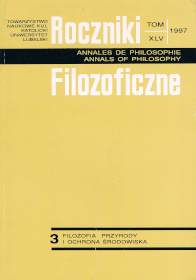Conceptions of Solving the Difficulties of the Standard Cosmological Model
Abstract
In the period of last twenty years well-known Big-Bang (standard) cosmological model meets any important theoretical difficulties, which make it not quite useful for understanding the new uncovered observational facts and data. All the subjective ways of generalizing the theory into the form of a new, more subtle, global model of the Universe, are not fully satisfied up to present. More useful for realizing this target seem to be ways of the methodological nature.
In the article one presents possible ways of generalizing the Big-Bang cosmological model in the context of the physical facts, which are not interpretable on the ground of the theory. One shows, that at present all the ideas such the type have been included into the one of three possible sets, which are one of two types: subjective or metodological nature ones.
The content of the paper concerns on questions connected with four important problems: a) what are main directions of researches in modern theoretical cosmology, which are connected with the above mentioned problem of the standard theory's difficulties, b) what is the nature and character of these researches, c) what are the main implications of such the works, d) what are possible ways (if any) of doing anything else at such the basis and which directions of researches seem to be best usable for solving the mentioned problem.
In the paper there are articulated two main conclusions. The first one is, that most hopefulway of researches is the methodological one. The second conclusion is, that in researches of the modern cosmology, tools of the methodological nature are able to be veryuseful for subjective analyses, especially for verificating the sets of model's boundary conditions, whatbelongs to the most important questions in the process of constructing the cosmological models.
References
FosterNightingale: Ogólna Teoria Względności, Warszawa, PWN.
Michniowski T.: Wszechświaty inflacyjne w świetle koncepcji modeli seryjnych, Lublin 1993 (rozprawa doktorska − mps BKUL).
Michniowski T.: Schematy badawcze w konstruowaniu modeli Wszechświata. „Roczniki Filozoficzne” 44(1996), z. 3, s. 75-86.
Heller M.: Fizyka ruchu i czasoprzestrzeni, Warszawa 1993, PWN.
Heller M.: Ewolucja kosmosu i kosmologii, Warszawa 1985, PWN.
Heller M.: Seryjne modele Wszechświata, „Roczniki Filozoficzne” 15(1967), z. 3, s.73-89.
Linde A.: Fizika elemientarnych czastic' i infłacjonnaja kosmołogia, Moskwa 1990.
Ellis G. F. R. et. al.: Inflationary models with Ω 0, Phys. Lett. B 271(1991), s.52-60.
Dicus D. A. et. al.: Future of the Universe, Sci. Amer. 248(1983), z. 3, s. 74.
Michniowski T.: Konstruowanie modeli w kosmologii, „Roczniki Filozoficzne” 43(1995), z. 3, s. 75-87.
Michniowski T.: Zarys historii modeli inflacyjnych, W: Kosmos i filozofia, Kraków 1995, s. 69-91, OBI.
Michniowski T.: Pustynia czy człowieczy dom?, „Człowiek i Przyroda” 1996, nr 3, s. 27-34.
Ellis G. F. R.: Cosmology and Verifiability, Q. J. of the Roy. Astr. Soc. 16(1975), s.245-264.
Heller M.: Konstrukcja relatywistycznego modelu Wszechświata, „Postępy Astronomii” 19(1971), nr 1, s. 45-55.
Hawking S.: Krótka historia czasu, Warszawa 1993, Alfa.
Michniowski T.: Wszechświaty inflacyjne w świetle koncepcji modeli seryjnych − streszczenie, „Edukacja Filozoficzna” 18(1994), s. 200-204.
Gruszczak J., Heller M., Szydłowski M.: The Universe as a stochastic process, Phys. Lett. A 100(1984), nr 2, s.82-84.
Gruszczak J., Heller M., Szydłowski M.: Singularities in a stochastically predictable universe, Phys. Lett. A 100(1984), nr1-2, s.13-16.
Carfora M., Marzuoli A.: Smoothing-out spatially closed cosmologies, Phys. Rev. Lett. 53(1984), nr25, s.2445-2448.
Copyright (c) 1997 Roczniki Filozoficzne

This work is licensed under a Creative Commons Attribution-NonCommercial-NoDerivatives 4.0 International License.





